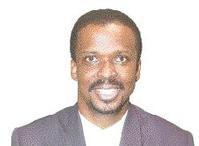
Devon Dick
Recently, I was watching Love TV as it broadcast a health programme which originated overseas. It appears to me that the major problem with Love TV is the lack of indigenous programmes. Nine out of 10 times when I tune in to Love TV it is a programme or video that has a foreign origin.
The Gleaner has led the way in the media with an excellent Health page every Wednesday featuring psychiatrist, Dr. Wendel Abel; dietician Rosalee Brown; derma-tologist Clive Anderson; Eulalee Thompson and others. Love TV needs to tap the local health sector to deal with our unique medical problems. Jamaica has produced medical personnel who are thinking outside the traditional box - persons like Dr. Tony Vendryes and Dr. Robert Robinson. Love TV should use such persons.
Love TV has Vantage Point, a local programme, which discusses current affairs. This indigenous programme is a lone voice in the wilderness. The hosts, the affable Clyde Edwards and the informed Donovan Cole along with irregular guests Las Newman and Billy Hall attempt to discuss various issues but that programmme could be helped with other supporting programmes.
Room for counselling
TVJ and RJR along with Ian Boyne staged a coup in hosting 'Religious Hardtalk.' Power 106 has 'Dear Pastor' with Pastor Aaron Dumas and that programme is gaining listenership. One would have expected that Love TV would have such programmes. There is still room to discuss mature issues of the Christian faith. There is room for live and recorded counselling on Love TV.
In addition, Love TV needs to explore sharing local programmes that are aired on Love FM.
When Love FM was established on Valentine's Day in 1993, 90 per cent of the programming was local. In addition the music offerings moved from 30 per cent local to 50 per cent by 1999. With that emphasis on an indigenous programming, Love FM was able to capture 14 per cent of the market share, which was a remarkable achievement.
This is the paradigm for Love TV. The owners of Love FM and Love TV are the Jamaica Council of Churches, the Jamaica Associa-tion of Evangelicals, the Jamaica Association of Full Gospel Churches, the Jamaica Pentecostal Union Apostolic, the West Indies Union of Seventh-day Adventists, and the Church of God in Jamaica. The combined membership of these organisations should be able to garner a significant viewership. Apart from technical problems, I believe that Love TV is suffering from lack of indigenous material, causing it not to gain a significant following.
Because of the availability of cable, these foreign programmes are readily accessible on other channels so it makes no sense for Love FM /TV to be emphasising overseas material. Its best bet is to concentrate on things Jamaican and Caribbean.
Preventing development
In addition, the use of alien material will prevent the development of local preachers, artistes, musicians and producers. There are some issues that are universal, but there are some local issues that need to be articulated and for which solutions are to be found.
Next year is the 200th anniversary of the abolition of the slave trade, and it would be a good time for Love TV to develop documentaries on the role of the Church in the slave trade, slavery and colonial Jamaica. Naturally, the role of the Church in the abolition of the slave trade and slavery should be highlighted.
There could be documentaries on historic churches, the role of the church in education, economic empowerment and politics. There could also be quiz competitions and music contests for up and coming gospel artistes.
Love TV needs to follow the formula of its religious counterpart Love FM and have a majority local programming and music.
Rev. Devon Dick is pastor of Boulevard Baptist Church and author of 'Rebellion to Riot: the Church in Nation Building.'

